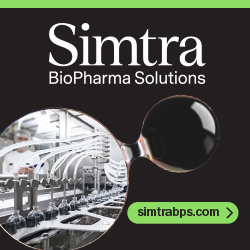Biogen Announces Positive Phase 2 Study Results
Biogen Inc. recently announced positive top-line results from the Phase 2 LILAC study evaluating the efficacy and safety of BIIB059, a fully humanized IgG1 monoclonal antibody (mAb) targeting blood dendritic cell antigen 2 (BDCA2) expressed on plasmacytoid dendritic cells, in patients with lupus.
“There is substantial unmet medical need for people with lupus given the limited number of treatment options available to help manage this difficult-to-treat and chronic disease,” said Nathalie Franchimont, MD, PhD, Vice President, Lupus and Multiple Sclerosis Portfolio at Biogen. “We are excited by the LILAC study results, and the potential for BIIB059 to be a meaningful new treatment option for patients living with lupus. We also believe these results support Biogen’s goal of continuing to build a multi-franchise portfolio by bringing potential new treatment options to people with great unmet medical need.”
LILAC was a two-part study that evaluated BIIB059 versus placebo in individuals with active cutaneous lupus erythematosus (CLE), including chronic and subacute subtypes, with or without systemic manifestations and in individuals with systemic lupus erythematosus (SLE) with active joint and skin manifestations.
The CLE part of the study met its primary endpoint (p<0.001) by demonstrating a dose response of BIIB059 on the percent change from baseline in the Cutaneous Lupus Erythematosus Disease Area and Severity Index Activity (CLASI-A) score at Week 16 in individuals with CLE. Study participants with CLE treated with 50 mg, 150 mg, and 450 mg of BIIB059 experienced reductions in CLASI-A scores of 40.9% (p=0.008), 48% (p=0.001), and 42.5% (p=0.001), respectively, versus 14.5% with placebo. CLASI-A is a well-defined and reliable outcome measure that has been shown to detect meaningful change in CLE skin disease activity.
The SLE part of the study also met its primary endpoint of reducing disease activity in individuals with SLE as measured by change from baseline in total active joint count at Week 24 (treatment difference = -3.4 for BIIB059 450 mg versus placebo, p=0.037). Total active joint count is the total number of tender or swollen joints, with joint involvement being a common symptom in people with SLE. In addition, improvements in skin disease and overall disease activity were consistently observed across multiple secondary endpoints. The safety and tolerability profile of BIIB059 supports its continued development. Detailed results of the LILAC study will be made available in a future scientific forum.
BIIB059, discovered and developed exclusively by Biogen, is a fully humanized IgG1 monoclonal antibody (mAb) targeting blood dendritic cell antigen 2 (BDCA2) currently being investigated for the treatment of CLE and SLE. BDCA2 is a receptor that is uniquely expressed on a subset of human immune cells called Plasmacytoid Dendritic Cells (pDCs), and it has been shown to reduce inflammatory cytokine production from pDCs, including type-I IFN (IFN-I). Inflammatory mediators are thought to play a major role in the pathogenesis of lupus.
The Phase 2 LILAC study was a two-part, randomized, double blind, placebo-controlled study that enrolled 264 individuals to evaluate the safety and efficacy of BIIB059 versus placebo in individuals with active cutaneous lupus erythematosus (CLE), including chronic and subacute subtypes, with or without systemic manifestations and in individuals with systemic lupus erythematosus (SLE) with active joint and skin manifestations. The CLE part of the study, which enrolled 132 patients, investigated either a 50-mg, 150-mg, or 450-mg dose versus placebo in individuals with active CLE. The primary endpoint was dose-response of BIIB059 as measured by percent change from baseline in the Cutaneous Lupus Erythematosus Disease Area and Severity Index Activity (CLASI-A) Score at Week 16. The SLE part of the study, which enrolled 132 patients, evaluated a 450-mg dose versus placebo in individuals with active SLE. The primary endpoint was change from baseline in total active joint count at Week 24.
CLE is a chronic autoimmune disease where the body’s immune system attacks healthy skin, often causing rashes and skin lesions which can be painful or itchy. CLE is associated with a decrease in quality of life and increased depression. In some forms of the disease, patients may experience scarring, skin atrophy and alopecia.
SLE is a chronic autoimmune disease that affects multiple organ systems, with periods of illness or flares alternating with periods of remission. SLE can present itself in several ways including rash, arthritis, anemia, thrombocytopenia, serositis, nephritis, seizures or psychosis. SLE is associated with a greater risk of death from causes such as infection and cardiovascular disease.
At Biogen, our mission is clear: we are pioneers in neuroscience. Biogen discovers, develops and delivers worldwide innovative therapies for people living with serious neurological and neurodegenerative diseases as well as related therapeutic adjacencies. One of the world’s first global biotechnology companies, Biogen was founded in 1978 by Charles Weissmann, Heinz Schaller, Kenneth Murray and Nobel Prize winners Walter Gilbert and Phillip Sharp. Today Biogen has the leading portfolio of medicines to treat multiple sclerosis, has introduced the first approved treatment for spinal muscular atrophy, commercializes biosimilars of advanced biologics and is focused on advancing research programs in multiple sclerosis and neuroimmunology, neuromuscular disorders, movement disorders, Alzheimer’s disease and dementia, ophthalmology, immunology, neurocognitive disorders, acute neurology and pain.
Total Page Views: 1207

















